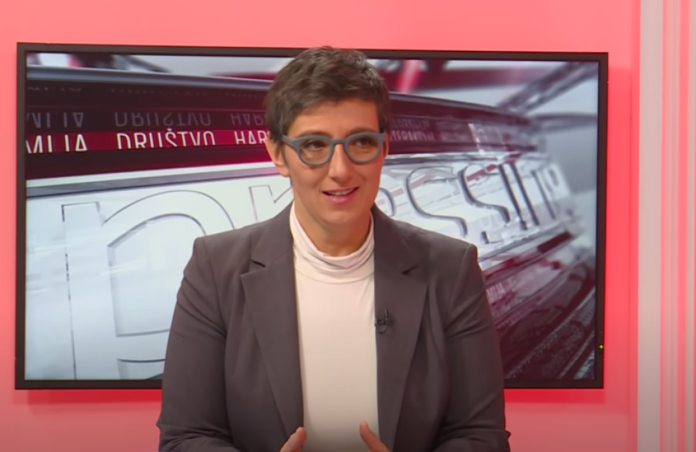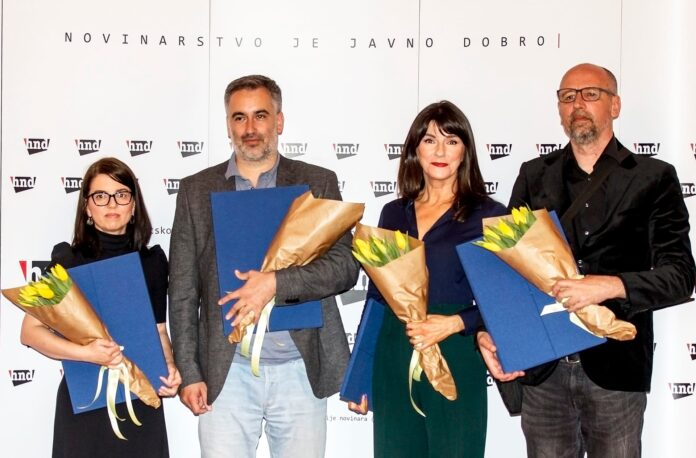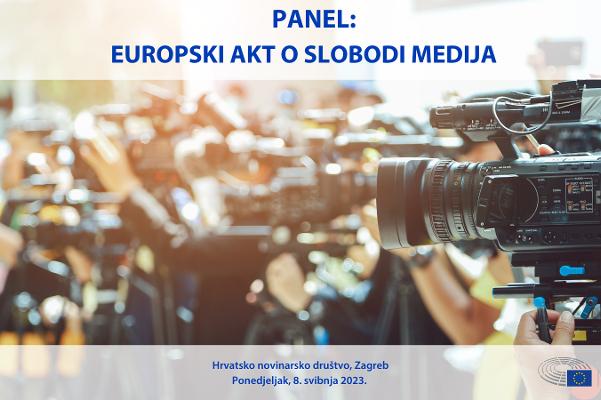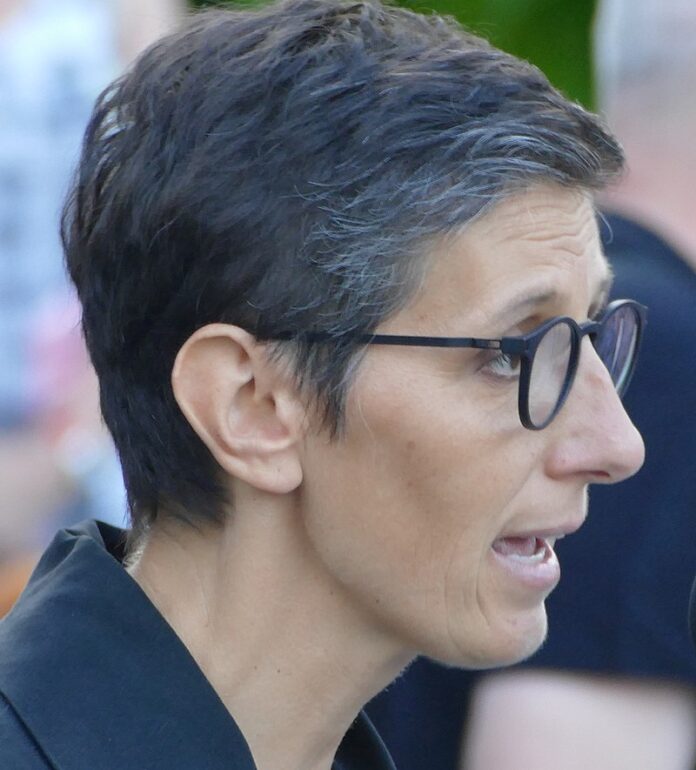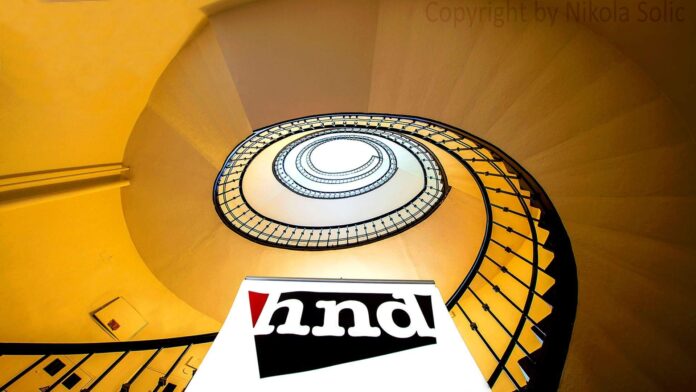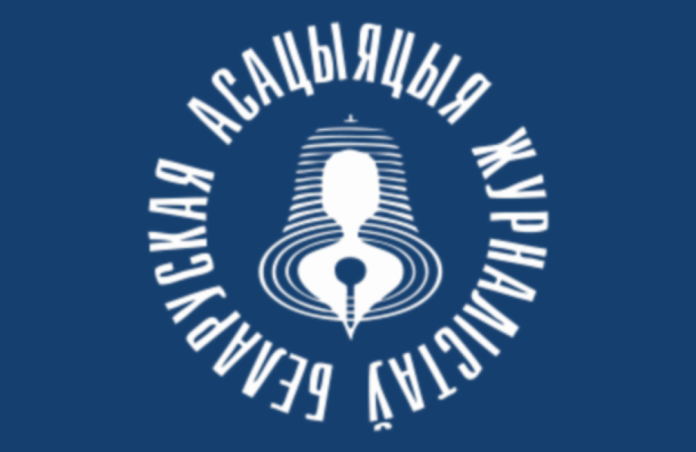AWARDS “EUROPA” ANNOUNCED
Journalists Josip Bohutinski, Irena Frlan Gašparović, Ivanka Zorić, and Marko Stričević are the recipients of the Europa Award, presented by the Croatian Journalists’ Association (CJA) as recognition for the most successful media works in the field of European politics and their impact on citizens’ daily lives. The award is symbolically presented for the first time in 2023, as Croatia marks the 10th anniversary of its membership in the European Union. With the support of the European Parliament Office and the Representation of the European Commission in Croatia, the establishment of this new award aims to further valorize the work of journalists who excel in investigative reporting on European topics, contribute to the promotion of EU values and fundamental freedoms, and enhance understanding of European public policies.
The awards for this year were decided by the Evaluation Committee, which included Amela Čilić, Dražen Korda, Silvana Menđušić, Helena Puljiz, Denis Romac, Silvija Šeparović, and Tea Trubić. Below are the justifications for the awarded journalistic works.
Europa Award for Written Journalism
JOSIP BOHUTINSKI
Josip Bohutinski, a long-time journalist for Večernji list, has specialized in the field of transportation, becoming one of the few sectoral journalists in Croatia. His article published in Večernji list on July 26, 2022, titled “Večernjakov novinar pratio je Pelješki most svih 17 godina: Kako je projekt prvo propao, a onda se sve sjelo na svoje mjesto” (Večernji’s journalist followed Pelješac Bridge for all 17 years: How the project initially failed, and then everything fell into place), reflects his comprehensive coverage of the development of one of the largest infrastructure projects in Croatia, the Pelješac Bridge.
Bohutinski meticulously traces the project’s beginnings, political maneuvers, and pivotal moments leading to its realization. Through his insightful analysis, he sheds light on the complex processes and influences shaping the project, ultimately culminating in its completion. Bohutinski’s exceptional sectoral journalism guided readers through the various stages of the bridge’s construction, providing a thorough understanding of both the project itself and its significance within the context of Croatia’s integration into the European Union.
Europa Award for Online Journalism
IRENA FRLAN GAŠPAROVIĆ
Irena Frlan Gašparović, a journalist for Telegram.hr, has long been recognized for her authoritative coverage of European topics in Croatia. Her article titled “Država i Grad Zagreb imaju slične zgrade jednu kraj druge. Grad svoju počinje obnavljati od potresa, država nije riješila ni papire” (The State and the City of Zagreb have similar buildings side by side. The City starts renovating after the earthquake, the State has not even sorted out the paperwork) published on June 12, 2022, exemplifies her ability to translate bureaucratic EU language into accessible content for readers of all backgrounds.
In her article, Frlan Gašparović dissects the issue of inadequate allocation of EU funds for earthquake recovery, highlighting the contrasting approaches of municipal and state authorities. Through meticulous analysis, she elucidates the administrative hurdles and systemic failures hindering effective disaster relief efforts. Frlan Gašparović’s compelling narrative style, coupled with her astute observations, makes her work both informative and engaging, contributing to a deeper understanding of EU-related challenges in Croatia.
Europa Award for Radio Journalism
IVANKA ZORIĆ
The radio program “Dossier Europa” by Hrvatski radio, led by editor Ivanka Zorić, has played a pivotal role in educating the Croatian public about the European Union and its policies. Through its comprehensive coverage and expert analysis, “Dossier Europa” has become a trusted source of information on EU affairs, bridging the gap between citizens and European institutions.
The episode “Korupcija i lobiranje u EU” (Corruption and lobbying in the EU), produced by Ivanka Zorić, offers a nuanced exploration of corruption within the European Parliament and the intricacies of lobbying practices. By examining real-life cases and providing expert insights, Zorić sheds light on the challenges facing EU governance and accountability mechanisms. “Dossier Europa” stands as a testament to the importance of informed journalism in fostering public awareness and democratic engagement.
Europa Award for Television Journalism
MARKO STRIČEVIĆ
Evaluating the best television feature, program, or documentary film was the most challenging part of the work for the members of the Europa Award committee because the competition was truly extensive and strong, with only two authors making it to the final round – Ivana Dragičević with her series of segments “The Future of Europe” and Marko Stričević with the documentary film “Russian Agents of Freedom.”
While Ivana’s segments, actually half-hour episodes of the series, impressed us with the poetic manner in which she draws us into the story, masterful interviews, and an unconventional approach to topics that, despite their importance, are unfairly marginalized, Marko brought a story that is currently interesting not only to Croatia and Europe but much beyond.
The film “Russian Agents of Freedom” presents the experiences of Russian dissidents after February 24, 2022, or after the Russian invasion of Ukraine. The author managed to gather some of the most prominent intellectuals, journalists, artists, and individuals who have felt firsthand what it means to express disagreement with the “Putin vertical of power.” Their activism was dangerous even before the war, especially after its beginning and the law that classifies dissenters of Putin’s regime as foreign agents and state enemies, subjecting them to lengthy imprisonment simply for speaking out or participating in anti-war protests. It is presumable that this made one of the most difficult tasks to persuade participants to take part in the filming. Some of them were therefore filmed in countries they fled to for their safety, and some were filmed under exceptional risk and secrecy by Russian cameramen.
The very theme of the film offers the Russian side of the story, confirming the fact that the support of Russian citizens for Vladimir Putin is nowhere near as significant as depicted by state propaganda.
What immediately stands out is the profound understanding of the subject matter, the analysis of the situation through the perspective of “ordinary people,” and, no less importantly, the fact that all conversations were conducted in the Russian language, which added additional value to the film and probably influenced the trust of the interviewees.
As the author himself explains: “The topic is of interest to European Union citizens because, in the era of information warfare and stereotyping accompanying the aggression of the Russian Federation against Ukraine, it provides insight into a part of Russian society that is less known in the West and whose existence is often denied today – both by the Kremlin regime and by certain circles outside Russia. The slipping of Russian society into extremism is studied and explained through the lives and actions of brave individuals whom Putin’s regime seeks to destroy.”
In the pursuit of interviewees in Poland, Lithuania, Latvia, Russia, and Croatia, it is certainly worth noting the cameraman Stjepan Kotarski, as well as several Russian cameramen who, for security reasons, did not want to be credited, as well as the excellent work of the editor Domagoj Frisch. They all contributed to the conception, filming, and editing of the film “Russian Agents of Freedom” in the style of the best contemporary documentaries. Therefore, “Russian Agents of Freedom” is our choice for the television part of the Europa Award.


